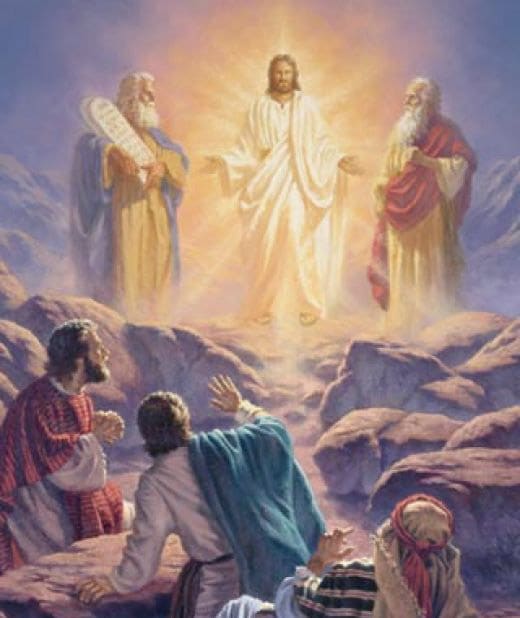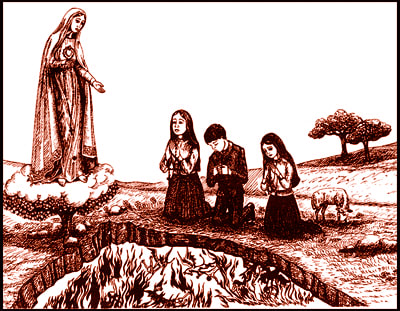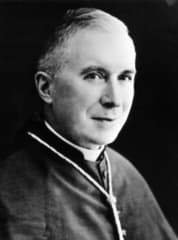アヴェ・マリア・インマクラータ!
愛する兄弟姉妹の皆様、
デ・ガラレタ司教様は、フランスのヴェルサイユ近郊のバイイ(Bailly)というところで講話をしました。2016年1月17日、司教様は教会における現状を描写し、ローマと聖ピオ十世会との関係が現状どうなっているかを話されました。司教様は、2009年から2011年まで、ローマとの教義上の議論を進める間、聖ピオ十世会の神学委員会の責任者をつとめた方で、これは講話の中での重要な部分で、DICIによって書き起こされたものです。その概要をご紹介します。
概要は、次の通りです。
信仰の危機は悪化している
ローマにおいて、「第二バチカン公会議の原則に含まれている全ての結論を導き出そうとする意志」が見える。ローマ当局によれば、エキュメニズム、信教の自由、司教団主義という公会議の主要なイデオロギーはすでに確立されている。今度は、道徳の番だ。真理については進化した、今度は、道徳についても進化しなければならない。人間の生命、道徳、法も変わらなければならない、と。しかし、現行の、公式の教会内部で、それに対する反発が起こっている。これは、底の深い反応で、彼らは底辺に、教義上の問題、信仰の問題があることを理解しだしている。彼らはまた、公会議と公会議後の教導職に問題があることにも気づき出した。彼らは、これらの誤謬を拡散している教会当局に対して行動を起こし、そして反対する必要があること、それは聖伝との完全な断絶に反対するためであることを、自問し理解しはじめている。枢機卿たち、司教たち、司祭たち、信徒たち、とても良い方向に、堅固に動き始めているのを見ている。
ローマからの教義と教会法上の二重の提案
2015年の夏に教理聖省が、聖ピオ十世会が属人区となる提案をしてきた。総長は、ローマからの二つの文書を聖ピオ十世会の管区長らや神学者たち、司教たちに送って、それらを分析し、意見を述べることを求めた。教義上の宣言については、もはやラッツィンガー枢機卿の求めた信仰宣言ではなく、ピオ四世の信仰宣言、つまりトリエント公会議の信仰宣言だった。以前の宣言には、信教の自由に関する段落があったが、今回はそれが削除されていた。エキュメニズムも削除されていた。新しいミサについては、典型版による、ラテン語原文の版による、新しい秘蹟と新しいミサの有効性、これは聖ピオ十世会が常に認めてきたこと、を認めることを求めていた。
総長は、ローマからの提案に、聖ピオ十世会を今あるがままに認めてほしいと答えた。教理聖省のこの提案に答える前に、私たちがどのようなものであり、どのように行動し、何を説教し、何をしており、何をせず、何をする準備がないか、を非常に明確に、徹底的に、説明する、と。しかし、ローマ当局は、少なくとも漠然と、少なくとも原理において、第二バチカン公会議とその誤謬を私たちが受け入れるように意図している。すくなくとも、実践において、教会法上の提案においてそれがあると思われる。
私たちは、ローマとの同意の可能性を、絶対的および理論的なやり方で拒否するのではない。それが、私たちを、自称「レジスタンス」と呼ぶ人々から区別する。自称レジスタンスにとって、ローマとの同意の可能性を認めることができないというのが原則、教義問題となっている。しかし、これは私たちの立場ではない。それはルフェーブル大司教の立場ではなかった。ルフェーブル大司教はローマとの同意のためのプロトコールを締結した。プロトコールを反故にした後でも、「私たちの保護のために、私たちの生き残りのために、必要な条件が無かったから」と説明した。彼らは、第二バチカン公会議に私たちを呼び寄せようとしているので、私たちに聖伝を与えたくないので、条件が存在しない、と。司教聖別後、ルフェーブル大司教は「私は同意するためのプロトコールを締結したが、信仰に反することは何も無かったから、そうした」と言っていた。私たち聖ピオ十世会は、この同じ線を辿る。
聖ピオ十世会を一方的に承認する?
教皇は、私たちがカトリックである、
聖ピオ十世会がカトリックである、自分は聖ピオ十世会を決して排斥しない、聖ピオ十世会を正常化しなければならない、と繰り返し言っている。
教皇は、すでにこの道を開始している。
もしも教理聖省が、自分に反対するのを見るなら、教皇は教義・理論・実践など全てを飛び越えて、聖ピオ十世会の承認を自分自身でやろうとするだろう。
教皇はすでにそれを始めている。それをし続けるだろう。
これは私がそう望むことだからそう言うのではない。そう予見されることを単に述べるだけだ。教皇は、教会法的なというよりは、事実上のこととして、聖ピオ十世会を一方的に承認するだろう。このような事実上の承認は、良い有益な効果がある。使徒職が大きく広がるだろう。特別な効果を持つだろう。ただし、同時にこれには、2つのリスクが存在すると思える。内部的な分裂を引き起こすリスクと、特定の状況下で私たちの説教が条件付けられるリスクだ。そこで、知恵と特別の賢明さ、堅固さ、明白さ、が必要だ。
天主への超自然的な信頼の徳が必要だ。もしも御摂理がこれを私たちに送るのなら、天主は同時に私たちに必要な恵みを与えてくださる。困難を克服し、我々が必要とする、対処に必要な恵みを与えてくださる。もしも明晰な考えを持っているのなら、善のために訳に立つだろう。もしも、そのような場合、万が一御摂理がそれを私たちに求めた場合、そのような推測をすると、私たちには善を置くなうための必要な恵みが与えられるだろう。天主様は、私たちを決して拒否しないし、私たちに、信仰と良い戦いとにおいて堅忍する必要な手段を常に与えてくださるだろう。
天主の摂理への信頼と、リスクへの恐怖
次のような反論があるだろう。「その場合にはリスクがある」と。生活の中には多くのリスクがある。戦争にはさらに多くのリスクがある。私たちは信仰の戦いを戦っている。戦争だ。しかし、天主の御摂理に信頼する。イエズスの教会に対する愛に全面的に信頼する。私たちはパニックしてはならない。そうしても何も変わらない。私たちは、残された自由の領域を活用する必要がある。敵が後退するなら、私たちは前進しなければならない。リスクがあるからという理由で、家に引きこもっていてはならない。私たちは慎重に行動しなければならない。勇気が必要だ。何よりも、私たちは天主に信頼する必要がある。天主のための戦いだ。私たちの信頼は天主と聖母マリアとにある。
個人的に、私は聖ピオ十世会や聖伝の将来については、全く心配していない。しかし、世界と社会、かつてカトリックであった国々の将来、公式のカトリック教会の将来について、私は心配し、悲観的になる。物事は最悪の事態に発展していることを予見している。はるかに絶望的、極端な状況に至ったとき、天主の御摂理の介入があるだろう。私たちの主は、常に歴史の主である。福音は私たちの頭の髪の一本でさえ、天主の許しなしに落ちないとある。私たちは平和を保つべきだ。何があろうと動揺してはならない。落ち着いた状態であれば、私たちは客観的現実に従って、公正な判断を保ち、バランスのとれた、カトリック的な、キリスト教的な、聖なる態度を保つことができる。それこそが、ルフェーブル大司教が私たちに伝えてくださった知恵であり、カトリックの態度だ。私たちは、どのような事態に直面しても、これらの線に沿って歩み続けることができる。
概要終わり
天主様の祝福が豊かにありますように!
トマス小野田圭志神父(聖ピオ十世会司祭)
英語訳は、次にあります。
Bishop de Galarreta: "I think the pope will lean towards a one-sided recognition."
原文はフランス語です。
Mgr de Galarreta : « Je pense que le pape va aller dans le sens d'une reconnaissance unilatérale. »
The crisis of the Faith worsens and arouses public reactions
In the first part of his conference, Bishop de Galarreta explained that “a will to draw all of the consequences contained in the principles of Vatican Council II” is developing in Rome. Now that the conciliar ideas of ecumenism, religious liberty and collegiality are established, according to the Roman authorities, it is morality’s turn to be infected with a form of evolutionism: “It is already the case with dogma and with the truth (according to the progressivists); it is already the case with ecumenism, religious liberty, collegiality, the whole liberal revolutionary spirit… so why not morality, too? In the end, it was incoherent not to apply evolution to morality, too;” it, too, is called to adapt to “man’s life, habits, laws, and the evolution of things…”
Nonetheless, the Argentinian prelate recognized that in the face of this disaster, there is a reaction: “Now we are starting to see reactions in the actual, official Church. And deep reactions, for some do realize that there is a doctrinal problem, a problem of faith. They realize that there is also a problem in the conciliar and post-conciliar magisterium. They are starting to ask questions and, this is very important, they understand that to oppose this complete rupture with Tradition, they have to react and necessarily oppose the authorities who diffuse these errors. So we see cardinals, bishops, priests and laymen beginning to react, and in the right way, even in an excellent way, sometimes very firmly.”
A double proposal from Rome: Doctrinal and canonical
Bishop de Galarreta then related that in the summer of 2015 the Congregation for the Doctrine of the Faith proposed a personal prelature along with a doctrinal declaration. And he explained that the “Superior General sent both Roman texts to all the major superiors and to some theologians of the Society, as well as to the bishops, so they could analyze them and give him our opinion.”
About the doctrinal declaration, the Argentinian bishop admitted: “What we see in the doctrinal declaration is that there is no longer Cardinal Ratzinger’s profession of faith. The Roman authorities ask us to make Pius IV’s profession of faith, that is, the profession of faith of the Council of Trent. Also, in the previous profession, there was a paragraph on religious liberty. They have suppressed this requirement. Ecumenism has been removed. On the Mass they had asked us to recognize the validity and the legitimacy. Now they ask us to recognize the validity of the new sacraments and the new Mass according to the typical edition, the original Latin edition. The Society has always recognized this. You see, they are taking away their conditions in an effort to succeed.”
Then Bishop de Galarreta explained that the Superior General thought it important to answer the Roman offer to recognize the Society “as it is” with a preliminary answer that was anything but vague: “Bishop Fellay told us, ‘before answering this proposal from the Congregation of the Faith, I am going to write them an exhaustive explanation to make it very clear how we are and how we act, what we preach, what we do, what we do not do, and what we are not ready to do’,” – in order to find out if the Society really is accepted “as it is”.
The Argentinian prelate then voiced his reservations for a profound doctrinal reason: “They still wish above all to make us accept, if only vaguely, if only in principle, Vatican Council II and its errors.” And he added that this Roman desire can be seen on the practical level in the canonical proposal: “There is always, in one way or another, a submission to the Roman dicasteries or to the bishops.” Which leads him to declare that personally, he would refuse the Roman proposals: “For me, an agreement with today’s Rome is out of the question.” He added that this is a prudential refusal, dictated by the circumstances – in the absence of the necessary warrantees for the life of the Society – and he was careful to distinguish himself from those who make this refusal an absolute.
“We do not refuse, you see, in an absolute and theoretical way the possibility of an agreement with Rome. That is what distinguishes us from the ‘Resistance’. For them it is a principle. It is a doctrinal question: ‘You cannot admit the possibility of an agreement with Rome without being liberal.’ Such is not our position. It is important to repeat it: it was not Archbishop Lefebvre’s position. He signed a protocol for an agreement with Rome. And at that time, even when he broke it off after the protocol, the Archbishop said: ‘it is because the necessary conditions for our protection, for our survival, are not there.’ Because they wish to deceive us, because they do not wish to give us Tradition, because they wish to bring us over to Vatican II. It is because the conditions are not there. He said, ‘If they had granted me the conditions, the conditions I had requested, I would have signed.’ Archbishop Lefebvre said that after the consecration of the bishops. And he explained, ‘If I signed a protocol for an agreement, it was because there was nothing against the faith.’ Neither in the contents, nor in the act of signing. This is obvious. So we continue along these lines.”
Towards a unilateral recognition of the Society?
In the second part of his conference, and beyond the proposals of the Congregation for the Doctrine of the Faith, Bishop de Galarreta publicly confided that he thinks the pope may soon confer a status on the Society of St. Pius X:
“I think, and this is the other aspect of things, that this pope who tells anyone who will listen that we are Catholic, who says and repeats that the Society is Catholic, that we are Catholic, will never condemn us, and that he wants our ‘case’ taken care of. I think– and he has already started down this path – that when he sees that we cannot agree with the Congregation of the Faith, I think that he will overreach any doctrinal, theoretical, practical condition, or any condition whatsoever… He is going to take his own steps towards recognizing the Society. He has already begun; he is simply going to continue. And I am not saying what I desire but what I foresee. I foresee, I think that the pope will lean towards a one-sided recognition of the Society, and that by acts rather than by a legal or canonical approach.”
Bishop de Galarreta admitted that “this de facto recognition would have a good, a beneficial effect: it is a rather extraordinary apostolic opening, and it would have an extraordinary effect.” But he adds that there would then be two risks: that of creating an internal division and that of conditioning our preaching in certain circumstances. And he wondered: “It would take an extraordinary wisdom and prudence, a very great firmness and clarity. Are we capable of this?”
The Argentinian prelate answered by asking his audience to keep a supernatural confidence in the face of these eventualities: “If that is what Providence sends us, then we will have the necessary graces to overcome the difficulties and deal with them as we should, but of course, only to the extent that it is not produced by our will but imposed upon us. If our ideas are clear, we can always take advantage of it and draw the good from it. But in this hypothetical case, – I am giving you my opinion based on conjectures, right? – in this case I think we will have the necessary graces to persevere and do the good we must do in our Holy Mother the Church. God will never deny us or stop giving us the means to persevere in the faith and in the good fight, if we always remain in the faith, in hope, in charity, in the strong confession of the faith, in our daily sanctification.”
Fear of risks and trust in Divine Providence
And he concluded after raising an objection: “So you are going to tell me: ‘In these cases there is a risk!’ – Yes, of course. In life there are many risks; in war there are even more. We are at war. So it will be as God wishes. But I have trust in Providence; I have complete trust in the love of Our Lord Jesus Christ for His Holy Church. So as long as we do not seek it, even if it happens, I think we must not panic. Nothing changes. It is the same fight that goes on, the same lines. We must simply take advantage of these areas of freedom that are left to us. In a war, if the enemy abandons the trenches, we have to take them over; if the enemy falls back, we must go forward. You don’t stay home because there are risks. We must act prudently, and we must take courage. And above all, we must have trust in God. It is the fight for God. Our trust is in Him and in the Blessed Virgin Mary.
“Personally I am not at all worried about the future of the Society or Tradition; however, for the future of society, of our nations that were once Catholic and even of the official Church, yes, I am worried and pessimistic. We can foresee that things are evolving for the worst. And it is when we are coming to a much more desperate, extreme situation that Divine Providence intervenes; God, who always uses divine means, intervenes. Our Lord is always the master of events and of history. And not only in general, but also in particular. So if the Gospel tells us that not one hair of our head falls, that all the hairs on our head are counted, that not a sparrow falls without the permission of God, I think we must remain peaceful. That is how we maintain an equitable judgment on objective realities and preserve an attitude that is not only balanced, but also Catholic, Christian and holy. That is the wisdom Archbishop Lefebvre passed on to us, this Catholic attitude. We can certainly continue along these lines in the present situation of the Holy Church today, and in the face of all the eventualities that will soon present themselves.”
(source: FSSPX/MG – DICI no.331 dated Feb. 26, 2016)













